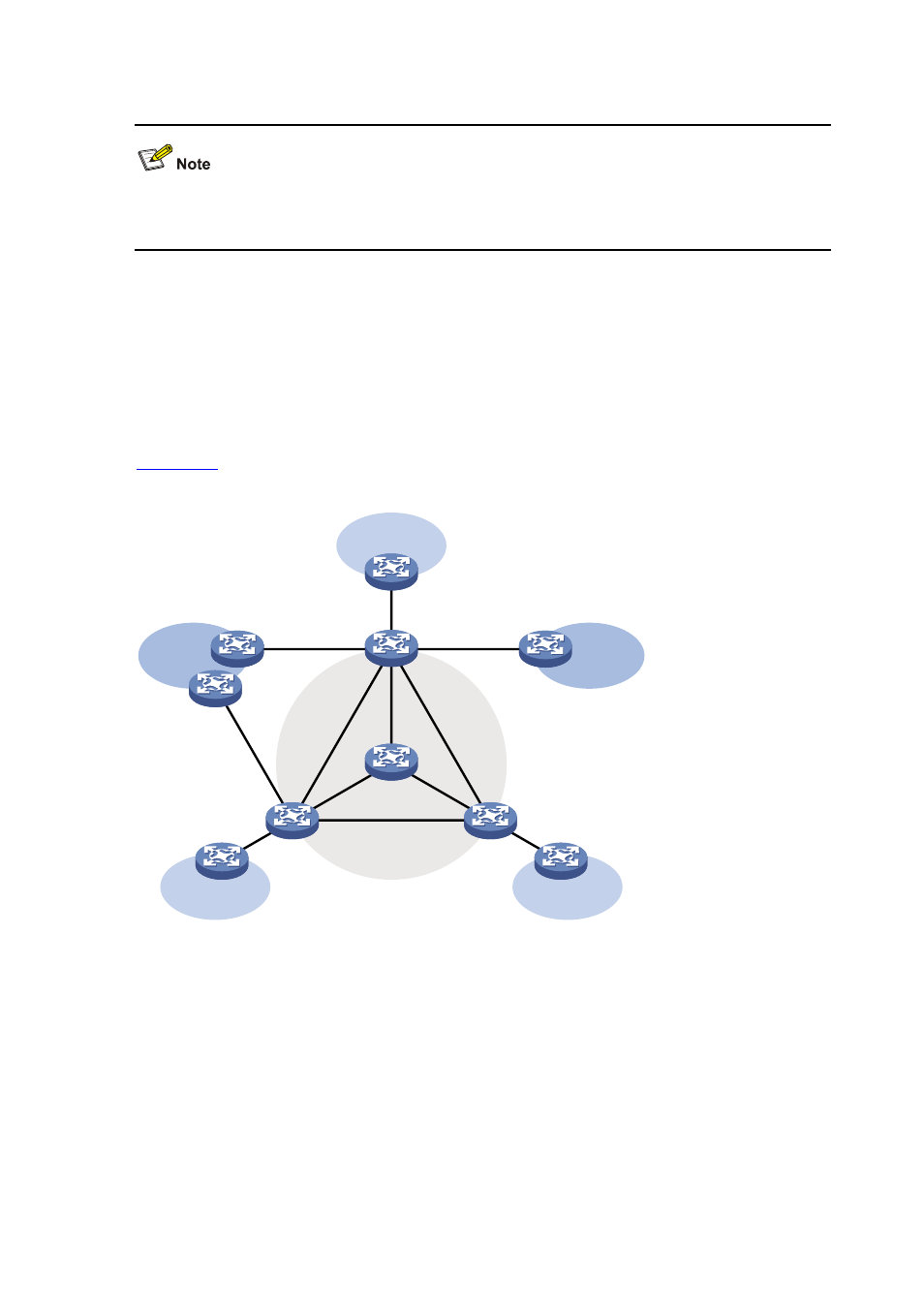Multi-instance multicast, Introduction to the multi-instance concept – H3C Technologies H3C S7500E Series Switches User Manual
Page 31

1-14
For details about the RPF mechanism, refer to Multicast Routing and Forwarding Configuration or
IPv6 Multicast Routing and Forwarding Configuration in the IP Multicast Configuration Guide.
Multi-Instance Multicast
Multi-instance multicast refers to multicast in virtual private networks (VPNs).
Introduction to the Multi-Instance Concept
VPN networks need to be isolated from one another and from the public network. As shown in
, VPN A and VPN B separately access the public network through PE devices.
Figure 1-10 Networking diagram for VPN
VPN A
VPN A
VPN A
VPN B
VPN B
Public network
P
PE 1
PE 2
PE 3
CE b3
CE a2
CE a3
CE b1
CE a1
CE b2
z
The P device belongs to the public network. The CE devices belong to their respective VPNs.
Each CE device serves its own network and maintains only one set of forwarding mechanism.
z
The PE devices interface with the public network and the VPN networks, serving multiple
networks at the same time. On each PE device, the information for different networks must be
strictly distinguished and a separate forwarding mechanism must be maintained for each
network. On a PE device, a set of software and hardware that serves the same network forms
an instance. Multiple instances exist on a PE device at the same time, and an instance resides
on different PE devices.
